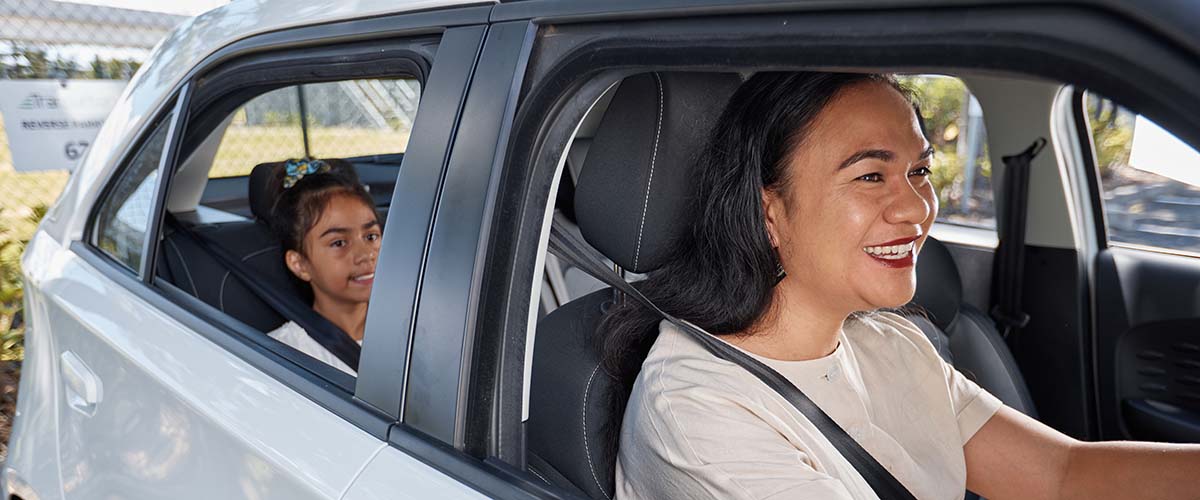Road fatalities have been climbing across Australia and the United States in recent years – an alarming trend we all want to turn back into the right direction.
Given risk-taking while driving is a factor in serious-injury crashes, our new research, the 2023 Transurban Insights: Road Safety report digs into the kinds of risks some drivers are taking.
Plus, if you’ve ever driven anywhere while stressed, you may have noticed this can lead to some not-great driving decisions. So our research also looks into what driving scenarios cause the most stress.
-
Research methodology
- Online survey conducted June-July 2023
- ~1,700 respondents, all aged 18+ with a driver’s licence from Melbourne, Sydney and Brisbane (Australia), the Greater Washington Area (United States) and Montreal (Canada).
Here’s a summary of our findings. For all the details, download the 2023 Transurban Insights: Road Safety report.
Speeding
Driving above the speed limit is illegal in all surveyed jurisdictions, and with good reason. Fatal crash risks increase exponentially with every few km/h you go above a speed limit. (Source: Australian Transport Safety Bureau.) But even though we all know this, our survey found drivers continue to put themselves and others at risk:
- between 72% and 87% (depending on the city surveyed) of respondents said they drive above the posted speed limit, with some speeding ‘very rarely’ and others ‘quite often’
- this behaviour was consistent across gender, age and other demographics
- more than 50% of those who speed said they do so on residential roads – roads not designed for higher speeds.
Seatbelts
The saying ‘seatbelts save lives’ is well proven. For example, the NSW Government reports people wearing a seatbelt are twice as likely to survive a car crash. Wearing a seatbelt when in a moving vehicle is mandatory in all surveyed jurisdictions, and while the vast majority of us do buckle up, some younger drivers need to be reminded to take this simple safety precaution:
- self-reported seatbelt use is high (from 91% to 96%) in all surveyed cities
- younger (aged 18 to 29 years) drivers are less compliant than older drivers, with 6% fewer (Australia and the Greater Washington Area) and 15% fewer (Montreal) reporting they always wear a seatbelt driving when compared to the average.
Mobile phones
The Victorian Transport Accident Commission says drivers are 10 times more likely to crash if they are texting, browsing the web or emailing when behind the wheel – and taking your eyes off the road for two seconds or more doubles your crash risk.
In all areas surveyed, operating a hand-held mobile device while driving is illegal. In Australia, secured devices are permitted for calls, navigation and to play audio. Mobiles are largely banned for learner and probationary drivers in Australia (with some variations between states). And they’re banned for under 18 drivers in North America.
While most respondents said they comply with these restrictions, not everyone does.
- 47% of Greater Washington Area respondents say they use unsecured mobile devices while driving, compared to 31% in Montreal and 26% in Australia
- 18-to-44-year-old drivers are more likely to use an unsecured mobile device – and they use their devices more often than older drivers
- most people using their phones illegally are: talking on the phone; getting directions; playing music; or texting.
Stressful driving scenarios
For some people, driving can be a stressful experience. Our survey explored what causes stress on the road. We found:
- around 80% of respondents feel stressed while driving at least some of the time
- more women than men report feeling stressed while driving
- respondents are most likely to feel stressed behind the wheel when: being tailgated; driving in bad weather; driving in congested traffic
- more than one in four respondents say they feel stressed when driving around trucks (if this is you, here’s some tips to help).
The full report includes information on how to reduce stress behind the wheel and other safety tips, as well as our detailed research findings.

